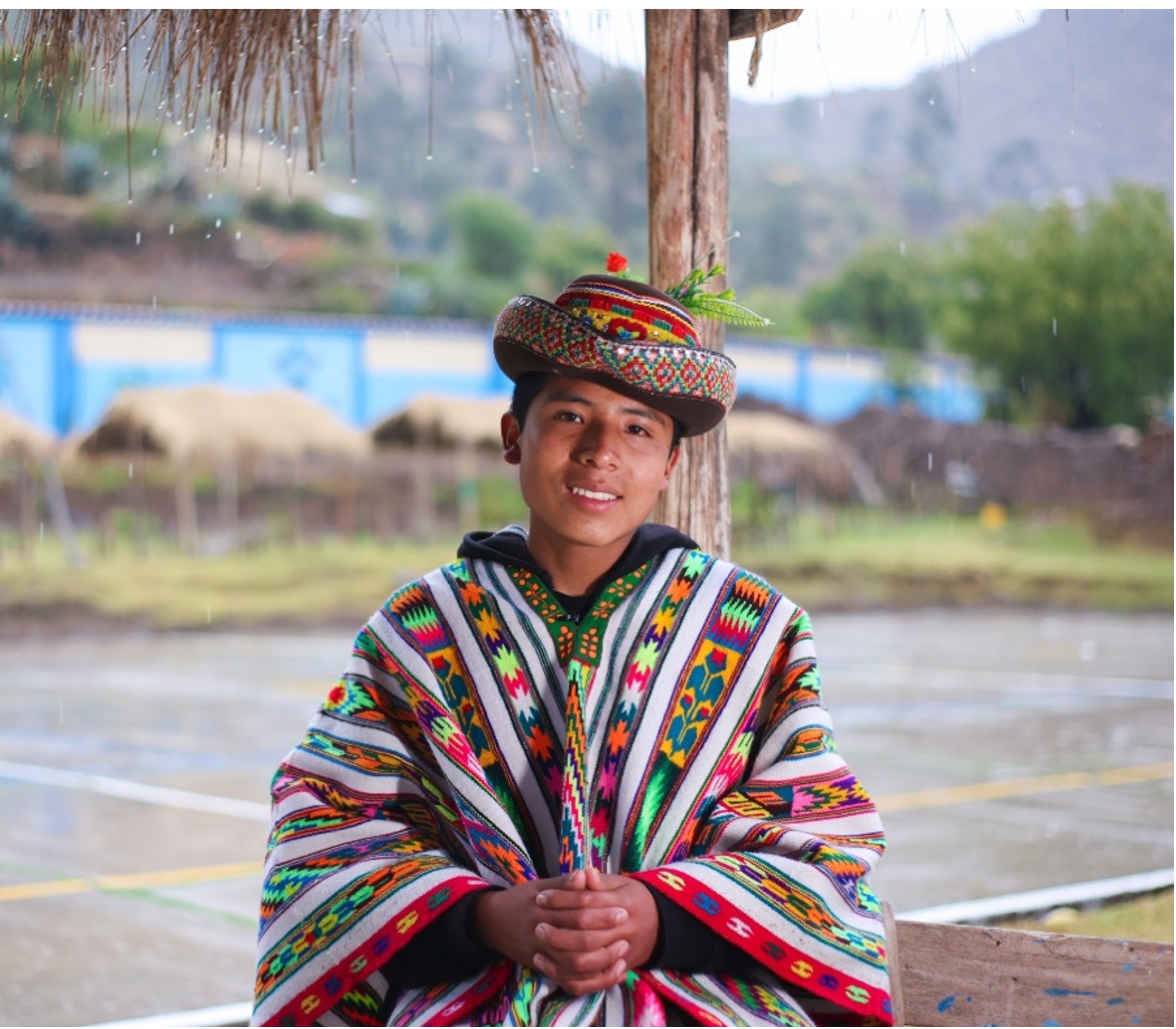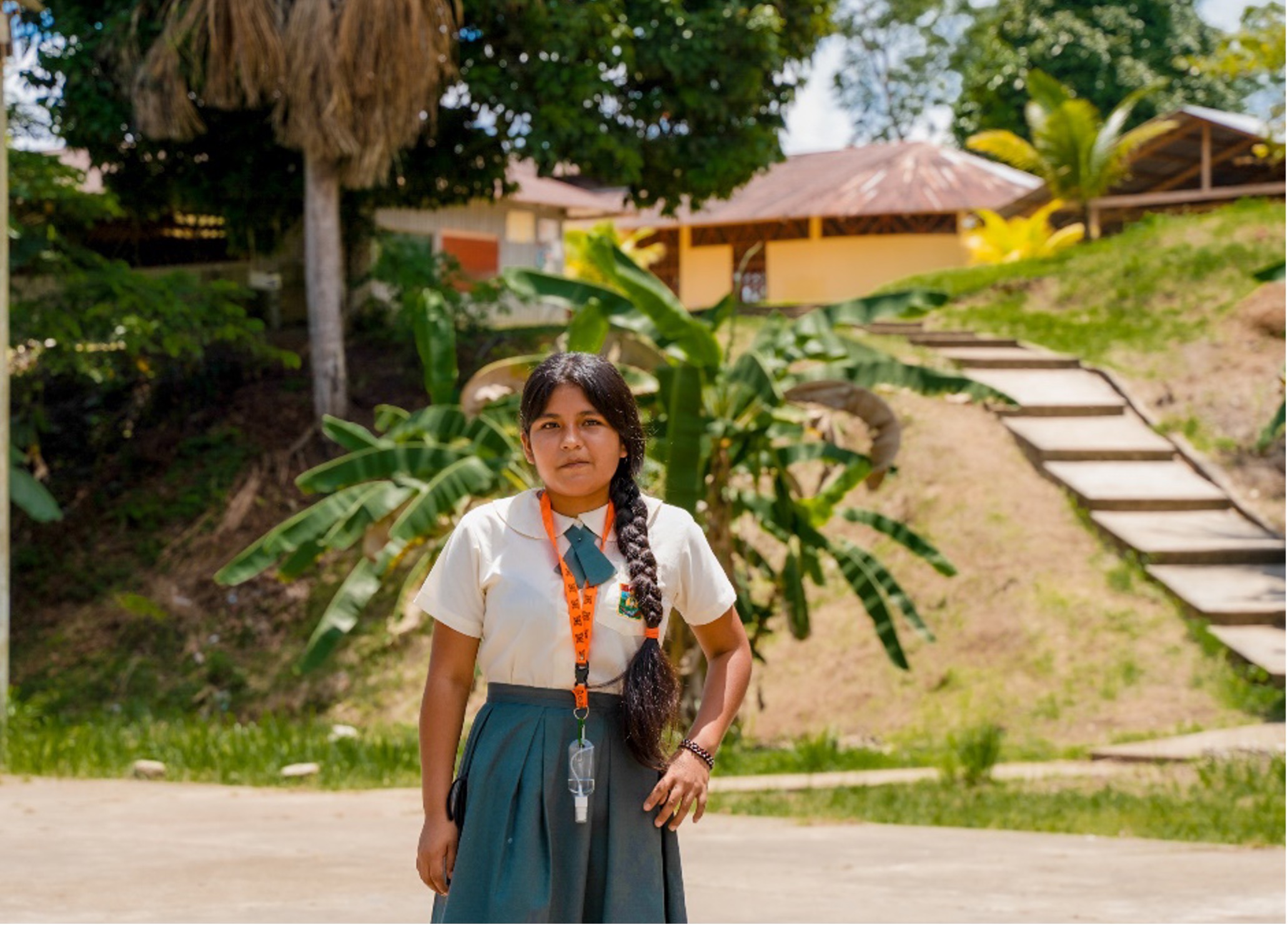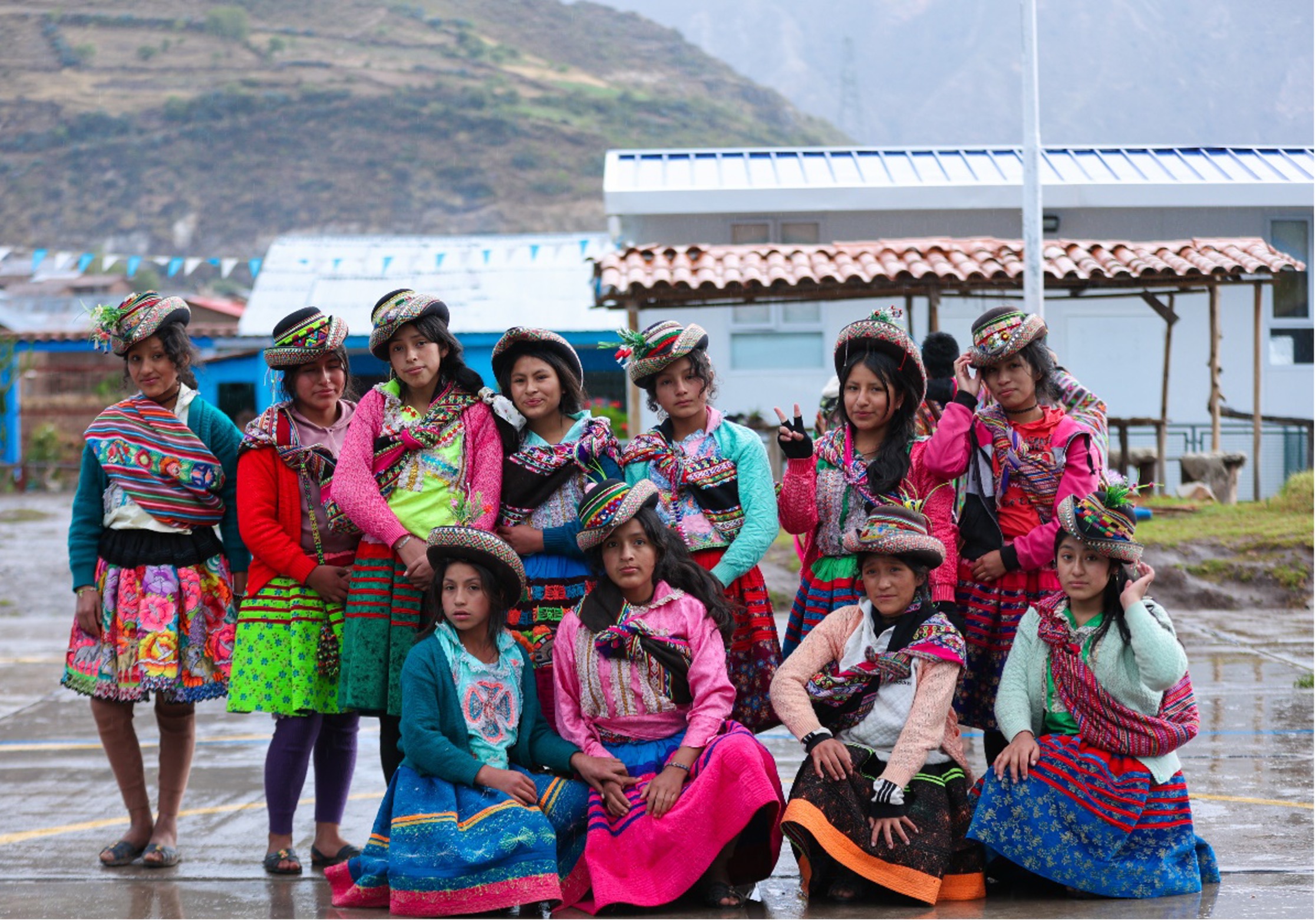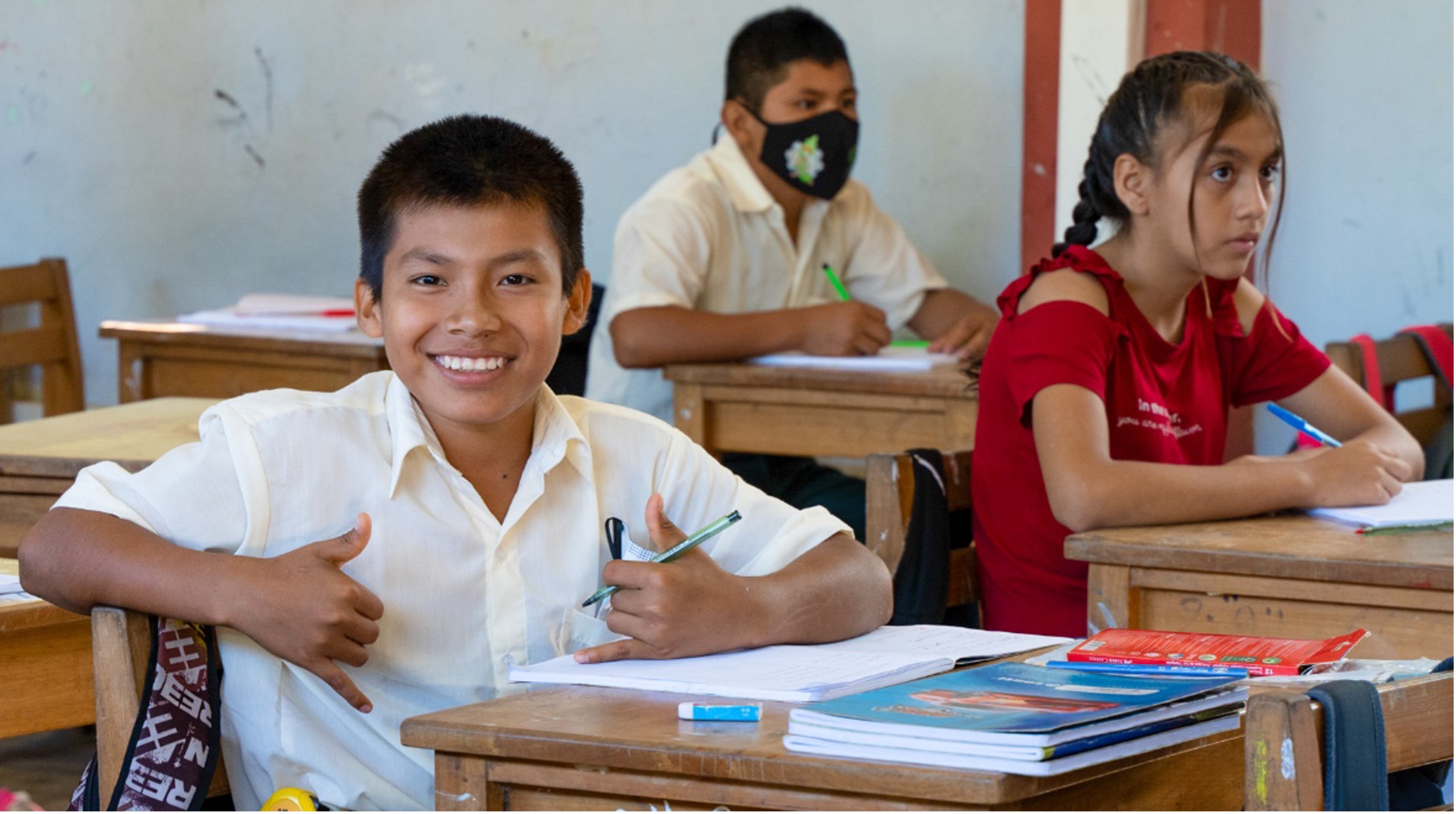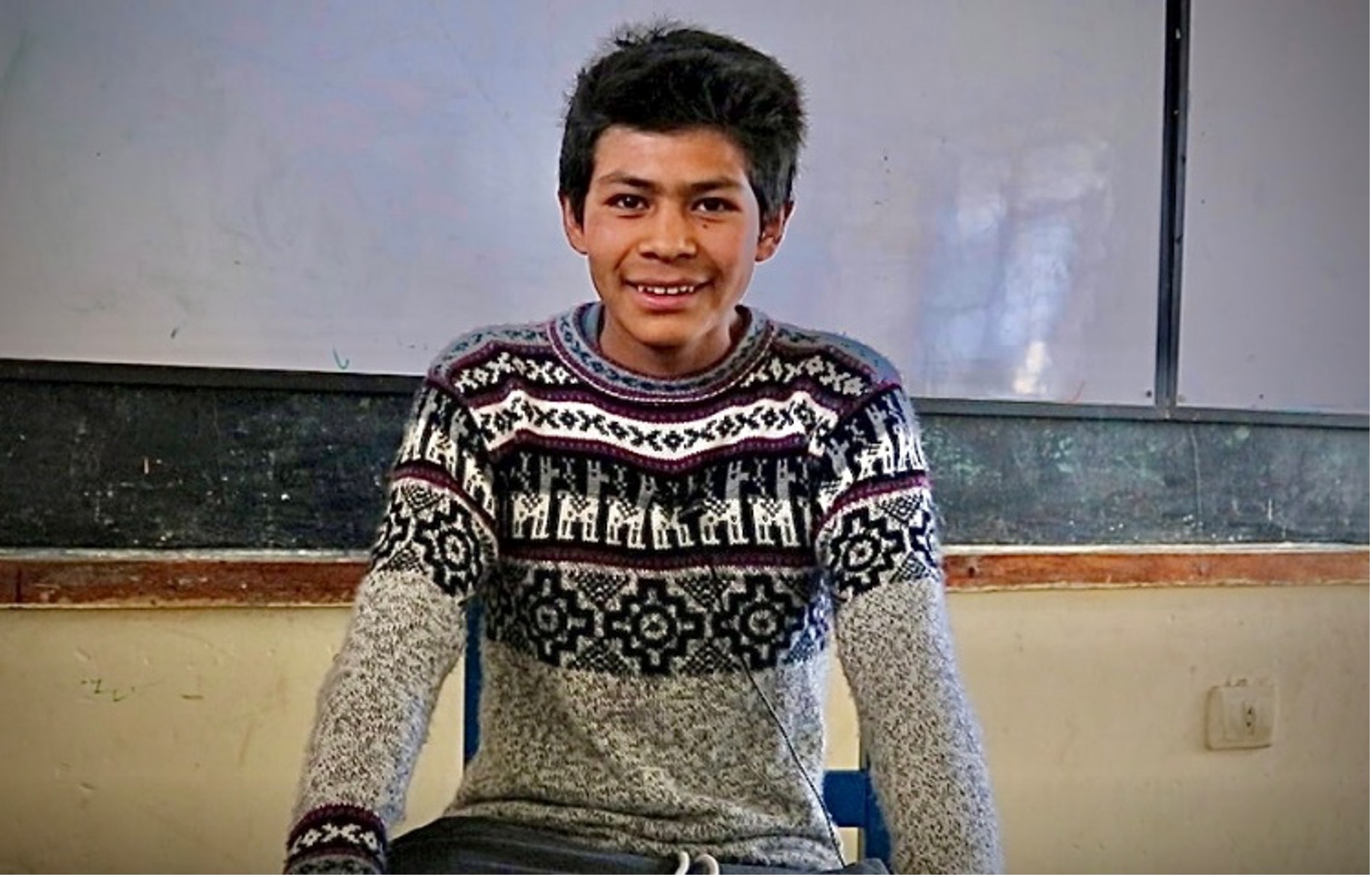 Horizontes: Rural Education Programme in Secondary Schools in Peru
Widening horizons for better life plans for rural adolescents
Horizontes: Rural Education Programme in Secondary Schools in Peru
Widening horizons for better life plans for rural adolescents

Challenges
Latin American countries struggle with tremendous inequalities, where rural children and adolescents are the most excluded population. In 2018, in Peru, the transition rate from secondary to higher education was 35 per cent in urban areas, but 24 per cent in rural schools. While 15 per cent of adolescents achieved a satisfactory level of reading comprehension in urban schools, the rate in rural areas was barely two per cent. A large part of adolescents in rural areas belong to indigenous communities which adds to the complex picture of inequality and exclusion.
While adolescence is a critical phase in which students are seeking answers about their identity and future, traditional secondary education in Latin America focused strongly on academic subjects, without providing skills and capabilities to face life beyond basic school. Socio-emotional aspects are often not considered by schools and technical and vocational education and training (TVET) is rarely offered.
Towards a Solution
The Horizontes rural secondary education programme in Peru is an innovative initiative focused on rethinking the meaning of rural secondary schools and their contribution to the trajectory of rural adolescents. The programme’s objective is to empower rural youth by allowing them to develop their potential, talent and professional projects. Since 2018, the programme has helped students complete their secondary education with a life plan based on a set of socio-emotional skills and TVET qualifications, expressed in a double certification (secondary and TVET).
The programme involved 5,275 students and 523 teachers and headteachers from 35 rural secondary schools in four regions of Peru. Although Horizontes is coordinated by UNESCO, the strategy involves a network of different local and national organizations including four Regional Governments, three local allies that implement the proposal (Centro de Investigación y Promoción del Campesinado (CIPCA), Tarea, and Vicariato de Jaén), and two organizations (CLAYSS and Ser Maestro) that contribute by providing training on project-based learning.
Horizontes actively participates in knowledge exchange and shared advocacy actions at regional level to facilitate South-South cooperation on promoting rural education. The main space for this is within two regional communities led by the Latin American Faculty of Social Sciences (FLACSO), where programme specialists from Peru share their experience on policy advocacy in rural education with colleagues from Brazil and Colombia. These working groups have a monthly meeting space, and a web platform is being created to share resources on rural education policies and responses to COVID-19. Countries also exchanged best practices at the FLACSO 2022 seminar. Currently, a regional rural education programme is being developed with the incoming administration in Colombia.
As a result of the project, around 2,400 secondary education students are taking technical training towards 10 technical different careers. Additionally, over 360 registered teachers completed diplomas in socio-emotional skills, risk factors for teenagers, project-based learning, and school governance. Finally, 311 teachers obtained a certified diploma.
One of the main challenges that Horizontes faced was developing the programme during the pandemic. However, by 2021, 27 out of 35 Horizontes schools offered blended education, and in 2022 all the Horizontes schools were re-opened with face-to-face classes. Welcome back and emotional well-being activities were prioritized. In terms of advocacy, UNESCO provided inputs and technical assistance to the Ministry of Education to design the return-to -school policies and continued participating in the regional LATAM Community of Practice on Rural Education.
The promotion of gender equality is also a key element of the project. Horizontes has been a vital support for pregnant teenage girls by providing them with technical training. The national team organizes regular meetings and has an action plan to promote gender equality among its members and through the implementation of the programme. This has been complemented by special support to girls and the community for the prevention of gender-based violence, as well as extensive teacher training, development of teaching materials, and school management support.
One of the main lessons learned from Horizontes is to respond to the characteristics of the territories and local visions. While all the regions aim to accomplish similar objectives, each region has its specific strategies and complementary areas of intervention. This enriches the programme and allows for a community of learning and of practice.
Contact Information
Countries involved
Supported by
Implementing Entities
Project Status
Project Period
URL of the practice
Primary SDG
Primary SDG Targets
Secondary SDGs
Secondary SDG Targets
Similar Solutions
| NAME OF SOLUTION | Countries | SDG | Project Status | |
|---|---|---|---|---|
100% Online Electronic Apostille and Legalization Sharing Colombia’s effective e-government system with other countries in the region |
Brazil, Colombia, Peru | 16 - Peace and Justice Strong Institutions | Completed | View Details |
Accelerating the Implementation of African Union Treaties in São Tomé and Príncipe South-South learning from the Beninese judicial system’s experience in the application of human rights treaties to its national law |
Brazil, Colombia, Peru | 05 - Gender Equality | Completed | View Details |
Accelerating the Transformational Shift to a Low-Carbon Economy in Mauritius Towards supplying 35 percent of the country’s energy needs with renewables by 2025 |
Brazil, Colombia, Peru | 05 - Gender Equality 09 - Industry, Innovation and Infrastructure 13 - Climate Action | Ongoing | View Details |
Access to Justice through e-Services and Dematerialized Case Management Scaling up connectivity and unlocking the digital potential of judicial institutions to enhance access to justice for all |
Brazil, Colombia, Peru | 05 - Gender Equality | Completed | View Details |
Action Plan on Gender Equality and the Empowerment of Women at the National Level in the Arab Region Mainstreaming gender action within national institutions in the Arab region |
Brazil, Colombia, Peru | 05 - Gender Equality | Completed | View Details |
